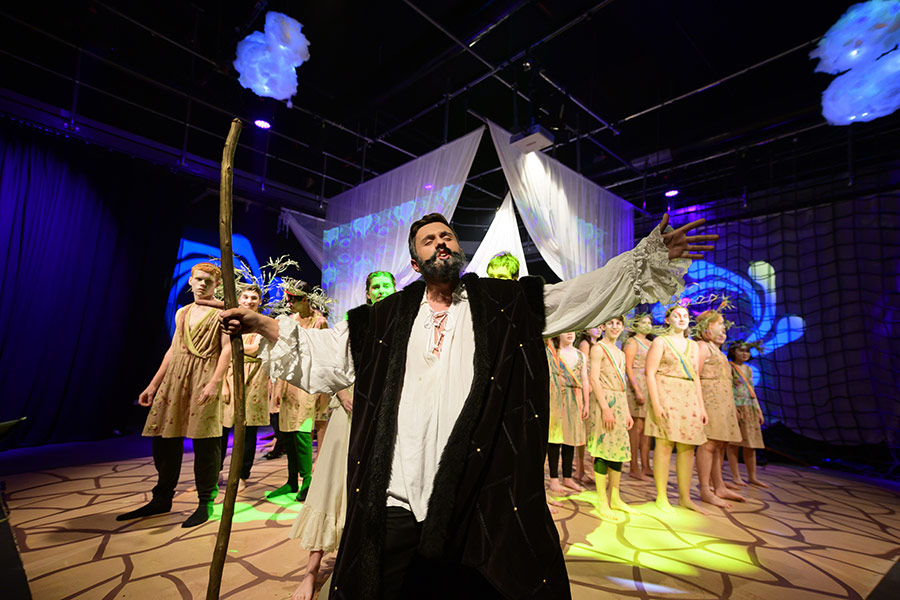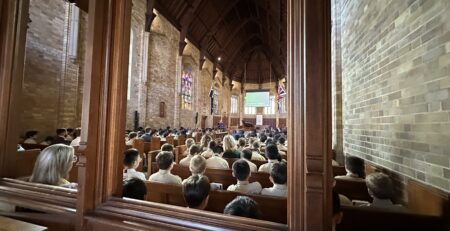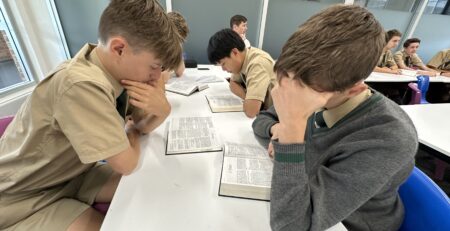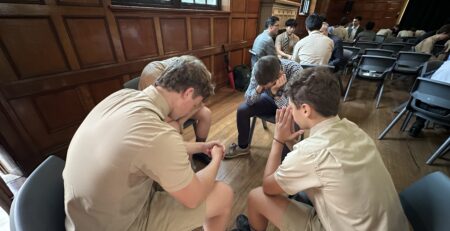A dramatic investment
Which subject makes young men most employable in the big, wide world beyond the School gates?
How many would choose Drama? How many would see it as the discipline likely to instil strength of character, awareness of self and others, and life skills to carry students through the rest of their years?
According to those who teach and study it, Drama brings life skills and more. It also has another highly practical spin-off effect: It helps students in a myriad of other subjects, from English and art to music, history and even ICT.

“It also encourages students to work collaboratively as a team, and most importantly to reach consensus – that’s what we drive as the benefits of the subject,” he said.
“We say to the boys, ‘That’s how the world works.’ Drama makes them more employable, and it also makes them better men.”
“We all have roles to perform – at home, in School, in sporting teams and so on – and the more self-aware you are the better you are at adapting to those different roles.”
English and Drama Senior Teacher Kathryn Smith Sergi said: “Drama students develop language and communication skills, confidence, self-esteem and are more likely to be active listeners.”
Senior students back that up from their own experiences with individual projects.
Doug K undertook a lighting project which was an amalgam of theatrical design and technical ability (IT), using a computer-aided program to craft the final product.
He said it aided him in English and went hand in hand with Entertainment.
David L opted to write a script, construct a story board and shoot an entire film about a teddy bear haunting a child-care centre.
He said he used skills developed in Drama to assist in English Advanced – through presentations, speeches and scriptwriting.
It also helped him in Music, as he composed, recorded and edited his own music and sound effects.
Ryan W studied how to stage a play, and themes in a play, based on Stories In The Dark by Debra Oswald. He said this helped him in English, where he learned to take “a big chunk of sources – emails from directors, reviews and interviews – and draw a link between the author and what I want”.
Mitchell B said dramatic techniques helped him in essay writing and creative writing in English Advanced, studying plays such as The Crucible and The Tempest. In English Extension it helped him come up with new ideas, and in creative reflection, “analysing my own work and understanding the rationale of my own decisions”.
Ryan T’s passion for Russian literature was the springboard for his script writing project. In turn this supported his research skills, developed his knowledge of play scripting and structure of textual forms, and supported his ideas for Extension 1 and 2, Advanced English and Ancient History.
Basil G engaged in a research project and critical analysis of playwrights from Stanislavski to Pinter. He said drama supported the research aspect of Ancient History, as well as the referencing and footnoting required for Extension 1 and Advanced English.
Anthony X wrote a script entitled Fading, about a grandfather’s descent into Alzheimer’s, which he said helped him with dramatic elements, vocabulary and text types in English.
“My marks in both (Drama and English) have increased,” he said.
















